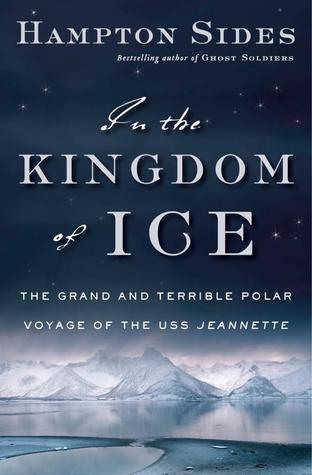More on this book
Community
Kindle Notes & Highlights
“In Russia,” Melville wrote, “intoxicating drink is a clog and a curse. I am satisfied that the Russians surpass every nation on the face of the globe in their ingenuity for avoiding work and getting drunk.”
WHEN NINDEMANN ARRIVED, Melville shook his head. “They’re here,” he said. Three frozen corpses lay at Melville’s feet: They were the bodies of Ah Sam, Dr. Ambler, and Captain De Long. On the basis of what Melville had read, he now believed that along the river, not far from the location of Alexey’s rifle, they would find eight more.
Emma De Long, just before she left the Jeannette in San Francisco, had pleaded with Dr. Ambler: “Will you be a close companion to my husband? You know how lonely a commanding officer must necessarily be.” The surgeon had said he would, and he made good on his vow to the end. De Long and Ambler had died side by side.
Their somber work was completed on April 7. Melville called the place Monument Point, but the Yakuts gave it a different name, one that would stand for more than a century: Amerika Khaya—“America Mountain.” On clear days, the cross would be visible for a hundred miles, floating in the Arctic atmosphere.
“In the awful silence of that vast waste,” Melville wrote, “we tenderly laid our dead comrades to rest. We were overawed by the simplicity of the obsequies, the oppressive stillness, the wonderful wilderness of white. There, the everlasting snows would be their winding-sheet and the fierce polar blasts would wail their wild dirge through all time. Surely heroes never found fitter resting-place.”
All this will be forgotten when we meet again; it will seem only as a bad dream—a fearful nightmare that has been successfully passed through. However dangerous your surroundings are at present I can still trust God and hope a little longer. I often dream of you and you seem all right, only sad and not as strong as you used to be. Oh darling! I cannot show you my love, my sympathy, my sorrow for your great sufferings. I pray to God constantly. My own darling husband, struggle, fight, live, come back to me!
“I trust,” he said, “that it was the rigor of our climate alone, and not the coldness of heart of any of my people, that caused the death of your comrades.” Empress Maria Feodorovna tenderly examined Melville’s hands and fingers, which still bore the scars of frostbite. “I hope,” she said, “that you will not again tempt fortune in the frozen North.”
His eyes, noted the Herald reporter, “beamed with their old, affectionate lustre.” Beneath that luster, however, there must have been sadness, for Melville had learned that over the course of the expedition, his wife, Hetty, had all but lost her mind and had nearly killed herself with drink.
“Is it said that too high a price in the lives of men was paid for this knowledge?” she asked. “Not by such calculation is human endeavor measured. Sacrifice is nobler than ease, unselfish life is consummated in lonely death, and the world is richer by the gift of suffering.”
Melville wanted Emma to know that he would fight unrelentingly for the memory of her husband—his beloved captain. “I will stand by you and De Long,” he told her, “as long as I have a piece of ice to stand on.”
Nansen, in 1893, attempted to reenact the voyage of the Jeannette in a better-designed vessel. Nansen’s expedition nearly reached the North Pole, and three years later his stout ship, the Fram, popped out of the pack into the North Atlantic, unsuccessful, but unscathed.
Melville died in Philadelphia in 1912. Two Navy ships—a destroyer tender and an oceanographic research vessel—were named after him. Today, the George W. Melville Award is the Navy’s highest honor for accomplishments in nautical engineering.


